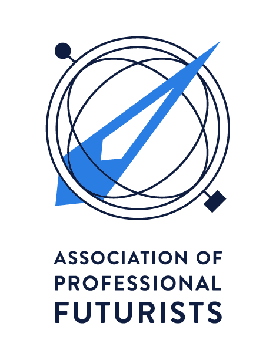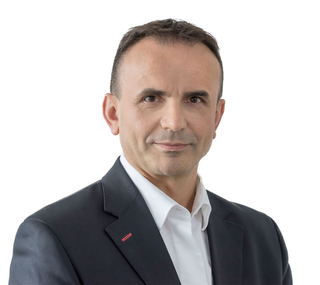
The future is the time after the past and present. Its arrival is considered inevitable due to the existence of time and the laws of physics. Due to the apparent nature of reality and the unavoidability of the future, everything that currently exists and will exist can be categorized as either permanent, meaning that it will exist forever, or temporary, meaning that it will end. In the Occidental view, which uses a linear conception of time, the future is the portion of the projected timeline that is anticipated to occur. In special relativity, the future is considered absolute future, or the future light cone.
Scenario planning, scenario thinking, scenario analysis, scenario prediction and the scenario method all describe a strategic planning method that some organizations use to make flexible long-term plans. It is in large part an adaptation and generalization of classic methods used by military intelligence.
Futurists are people whose specialty or interest is futurology or the attempt to systematically explore predictions and possibilities about the future and how they can emerge from the present, whether that of human society in particular or of life on Earth in general.

Futures studies, futures research, futurism or futurology is the systematic, interdisciplinary and holistic study of social and technological advancement, and other environmental trends; often for the purpose of exploring how people will live and work in the future. Predictive techniques, such as forecasting, can be applied, but contemporary futures studies scholars emphasize the importance of systematically exploring alternatives. In general, it can be considered as a branch of the social sciences and an extension to the field of history. Futures studies seeks to understand what is likely to continue and what could plausibly change. Part of the discipline thus seeks a systematic and pattern-based understanding of past and present, and to explore the possibility of future events and trends.
Strategic foresight is a planning-oriented discipline related to futures studies. In a business context, a more action-oriented approach has become well known as corporate foresight.

In futurology, especially in Europe, the term foresight has become widely used to describe activities such as:
Futures techniques used in the multi-disciplinary field of futurology by futurists in Americas and Australasia, and futurology by futurologists in EU, include a diverse range of forecasting methods, including anticipatory thinking, backcasting, simulation, and visioning. Some of the anticipatory methods include, the delphi method, causal layered analysis, environmental scanning, morphological analysis, and scenario planning.

The Association of Professional Futurists (APF) was founded in 2002 to validate the competencies of emerging futurists. As analysts, speakers, managers or consultants, APF's credentialed members cultivate strategic foresight for their organizations and clients. APF represents the professional side of the futures movement, while groups such as the World Futures Studies Federation, the World Future Society or The Millennium Project, represent its academic, popular, and activists expressions, respectively.
Backcasting is a planning method that starts with defining a desirable future and then works backwards to identify policies and programs that will connect that specified future to the present. The fundamentals of the method were outlined by John B. Robinson from the University of Waterloo in 1990. The fundamental question of backcasting asks: "if we want to attain a certain goal, what actions must be taken to get there?"

The University of Houston College of Technology is the second largest among 13 schools and colleges at the University of Houston. It offers 11 undergraduate degrees and 12 graduate degrees throughout four different departments. In Fall of 2017, there were 6,520 students enrolled in the college. The University of Houston has a new building in Sugar Land, Texas, for the College of Technology; programs are being moved there and a couple of programs will solely be offered at that campus.
The following outline is provided as an overview of and topical guide to futures studies:

Peter C. Bishop is a professional futurist (futurologist), a retired Associate Professor of Strategic Foresight, and the former Director of the graduate program in Futures Studies at the University of Houston.
Technology scouting is an element of technology management in which
Jewish Futurism is used in three different contexts: religious, artistic and futures studies
Corporate foresight has been conceptualised by strategic foresight practitioners and academics working and/or studying corporations as a set of practices, a set of capabilities and an ability of a firm. It enables firms to detect discontinuous change early, interpret its consequences for the firm, and inform future courses of action to ensure the long-term survival and success of the company.
Foresight: The Journal of Futures Studies, Strategic Thinking and Policy is an international bi-monthly journal published by the Emerald Publishing Group. The name connotes the term "foresight" as it is used in futures studies. Established in 1999, the journal provides a powerful framework and set of techniques that allow for understanding trends and drivers shaping the world, exploring alternative futures, setting priorities and formulating strategies for action. Foresight is a valuable source for futurists and foresight practitioners who should be at the forefront of discovering practical ways to manage 21st century life under growing complexity with a long-term perspective. The journal offers a much-needed forum for sound thinking about the future and socio-technological innovations, and focuses on themes and issues shaping the future, new quantitative and qualitative methods, as well as case studies with novel approaches. The journal is edited by Prof.Dr. Ozcan Saritas since 2009.

The Institute for the Future (IFTF) is a Palo Alto, California, US–based not-for-profit think tank. It was established, in 1968, as a spin-off from the RAND Corporation to help organizations plan for the long-term future, a subject known as futures studies.

Puruesh Chaudhary is a futures researcher, development and strategic narrative professional. She has a master's degree in International Negotiation and Policymaking from Graduate Institute of International and Development Studies in Geneva. She is also a Distinguished Fellow at the Institute of Strategic Studies Islamabad. Chaudhary is the founder and president of the non-governmental organization Agahi, a media development and capacity building initiative in Pakistan.

Pero Mićić is a German professor for Foresight and Strategy at Steinbeis-Hochschule Berlin, as well as author, public speaker and management consultant. He is the founder and CEO of the FutureManagementGroup AG. Mićić lives in Eltville, Germany.
Customer foresight is a new field of applied research. It aims to understand future consumer preferences and wishes with regard to tomorrow's products and services. It does so by combining customer research and foresight research elements. Customer foresight can be conceived as an interaction with projected future markets through selected customers by understanding their wishes and attitudes, ideas and visions as well as their perception of signals and drivers of change. Even though the concept cannot predict the future, it enables companies to prepare for different future scenarios and thus improves strategy and decision-making processes.








